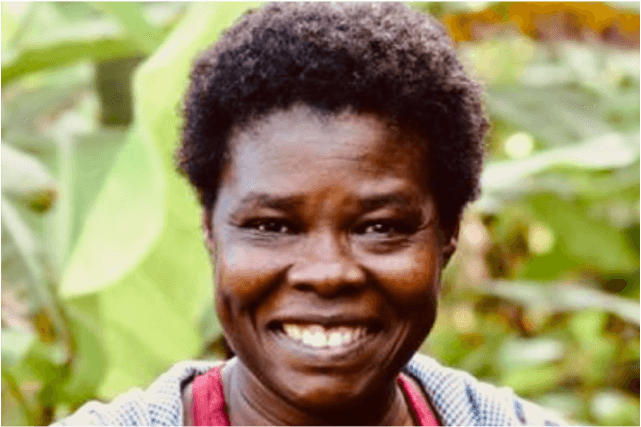
The Wonderful Story of How a Woman Put Togolese Cacao on the World Map
EARLY LIFE
“I was a weak child, often sick, and couldn’t stay with my parents in town. Instead, I grew up with my grandparents at their farm in the countryside. My grandfather was a cacao farmer. Like many Togolese children in rural areas, especially in those days, I did not go to school. But my childhood on my grandparents’ farm instilled a love of nature and farming in me that never left me. And on that same farm I met my husband, a Swiss man who had come to Togo to support smallholders. We fell in love, and I moved with him to Switzerland. In Switzerland I learned French, and I learned to read and write. We have three children, one boy and two girls. When they had grown up, I wanted to go back to Togo and fulfil my dream of becoming a cacao farmer.”
BECOMING A COCOA FARMER
“In 2009 I was able to secure some land in Togo. Because I didn’t know a lot about cocoa farming, I employed two growers from Ghana. They taught me how to plant and take care of the trees, all very valuable lessons. But when they advised me to clear the land, I refused. For me, farming and nature go hand in hand, and I will never cut down trees to make place for cocoa trees. On my cocoa farm it is like walking through a forest. I cherish nature. When I see my plants dying, I go and talk to them, I tell them they can and must survive. When the first rains of the rainy season come, my heart swells with happiness and joy when I see that those same plants are now vibrant and full of life.”
KEKELI COOPERATIVE
“One day I was walking with my husband on the farm, and we heard somebody calling a child: Kekeli, Kekeli! My husband asked me the meaning of the name in Ewe – our national language – and I told him: Kekeli is Light. He said, you should call the farm Kekeli, as it is a shining light for all farmers around you. Kekeli became also the name for the cacao cooperative.
We have around 290 members in the cooperative. When I introduced central fermentation in the area, many farmers were reluctant to give their wet beans to me. Normally, farmers ferment their beans on their own plot under banana leaves, heap fermentation. They were afraid that their beans would be stolen. Now they know that central fermentation helps to improve quality of the cacao and will fetch higher prices on the market.”
BEING A WOMAN COCOA FARMER
“As a woman it is not easy to be a cocoa farmer. Traditionally cocoa terrains belong to men, women do not inherit land in Togo. I am lucky, my husband supports me all the way. I tell women to go to their father and ask them for land to grow cacao. They need to build up something for themselves and their children. With cocoawomen can earn their own money, they don’t have to wait for their husband to pay for food and clothes and school fees for the children. Out of the 290 members of Kekeli, 187 are women. Almost twothird! When I started my farm and the cooperative, men did not like it at all. Today, I feel free from other people’s opinion. Today, the men who tried to stop me have become my friends. They want their wives to be cocoa farmers, too. Today, the men see how we can achieve more if we work together. The goal is to produce great cocoa in Togo and to make sure the world recognizes this.”
